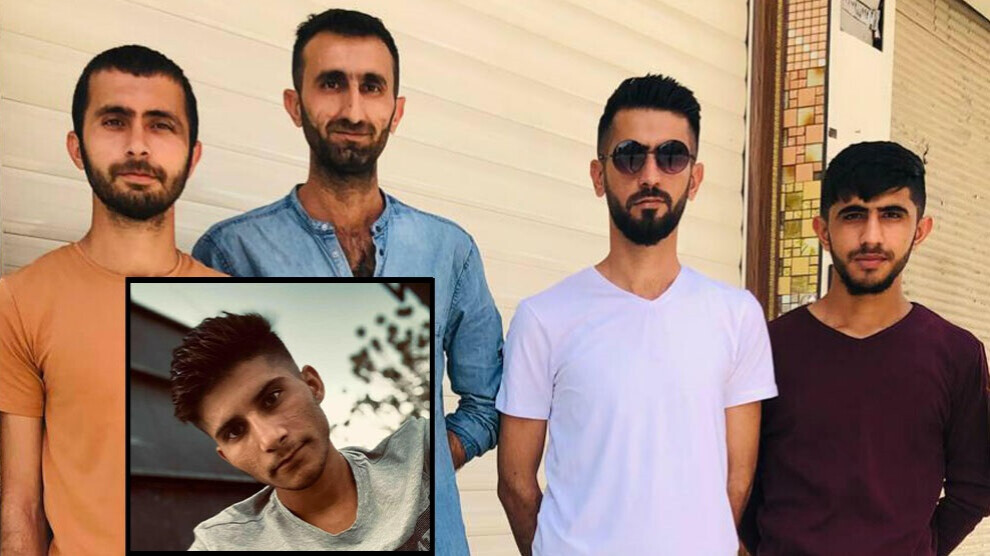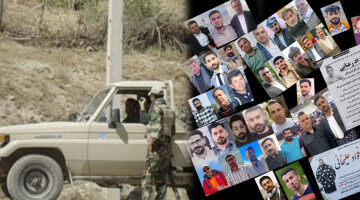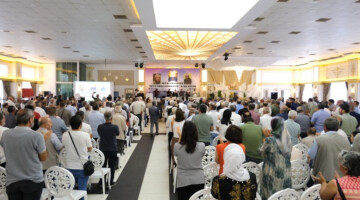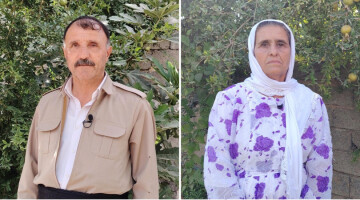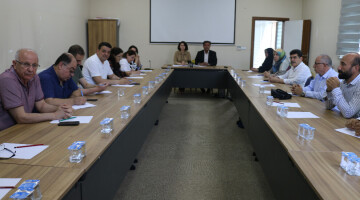Five men from Maxmur Camp have been arrested in Iraq. The four brothers and their brother-in-law were on their way to Baghdad for work when they were detained at a checkpoint on the side of Highway 1 toward Basra, their legal counsel said. The arrests were reported to have taken place as early as last Wednesday. Those involved are accused of PKK membership, he said. It is unclear exactly where they are being held.
The detainees are Adem, Mazlum, Cuma and Amed Yıldıztan, and Rêber Talî. They are among the thousands of residents of the camp about 60 kilometers southwest of Hewlêr (Erbil) who have been granted refugee status by the UNHCR. However, the United Nations Refugee Agency has not provided aid to the camp for years. Since July 2019, Maxmur has also been subject to a strict embargo by the KDP, which dominates the government in southern Kurdistan. Even the Corona pandemic has not been able to wake up the relevant authorities to lift the blockade. Under the most difficult conditions, the people have been fighting against destitution and for their survival ever since.
Some people from the camp, including the Yıldıztan brothers and their brother-in-law Rêber Talî, managed to bypass the blockade and leave Maxmur via a temporary exit in the direction of Qereçox. Only in this way is it possible to earn money outside the camp and thus support the families. However, the route is life-threatening. Instead of taking the direct route to Baghdad and other cities, the people have to take the road to the northeast - past Mount Qereçox, which is home to a base of the terrorist organization "Islamic State" (ISIS).
The ISIS base is located on the eastern slope of the mountain, where jihadists retreated from northern and eastern Syria after the military victory over the militia in spring 2019. Estimates put the number of mercenaries on Qereçox at around 150, targeting the Maxmur community as well as the refugee camp of the same name. Although only last May the Peshmerga of the Southern Kurdistan Regional Government and Iraqi security forces opened a joint coordination center for security operations in Maxmur, the jihadists often operate largely unrestricted. Attacks and kidnappings of civilians are not uncommon. Between August and September, six people were abducted by the militia when they were caught in an ISIS ambush disguised as an Iraqi army checkpoint.
Lawyers' visits denied
Meanwhile, Sultan Yıldıztan called on the Iraqi central government in Baghdad to immediately release her sons and her daughter's husband. "The KDP is preventing us from leaving Maxmur. If we do succeed, we are arrested. We are already familiar with this method from Hewlêr. Why are the Iraqi security authorities now following suit?", Yıldıztan wants to know. The justification for the arrests, that their relatives may belong to the PKK, is absurd and "far-fetched," she says. "We are refugees. Iraq knows that and so does the government of South Kurdistan. Yet we are criminalized. My children are not guilty of anything and were detained for no reason. Even their lawyers are not allowed to see them." Sultan Yıldıztan appeals to human rights organizations and the United Nations to work for the release of her sons.
Maxmur Camp
Maxmur refugee camp, which has officially been under the protection of the United Nations Refugee Agency (UNHCR) since its establishment, is now home to about 13,000 people. Most of them were forced to leave their villages in the Botan region of northern Kurdistan in the 1990s due to the brutal repression of the Turkish state. After an odyssey of several years and stays in various camps, they founded the Maxmur camp on the edge of the desert in 1998. The population thus forms the largest Kurdish refugee community in the world. Today, Maxmur, with its thousands of children born there into statelessness, is a small town and, despite poverty, constant threats and attacks - whether by Turkey or the ISIS - a place of peace and collective self-determination.

